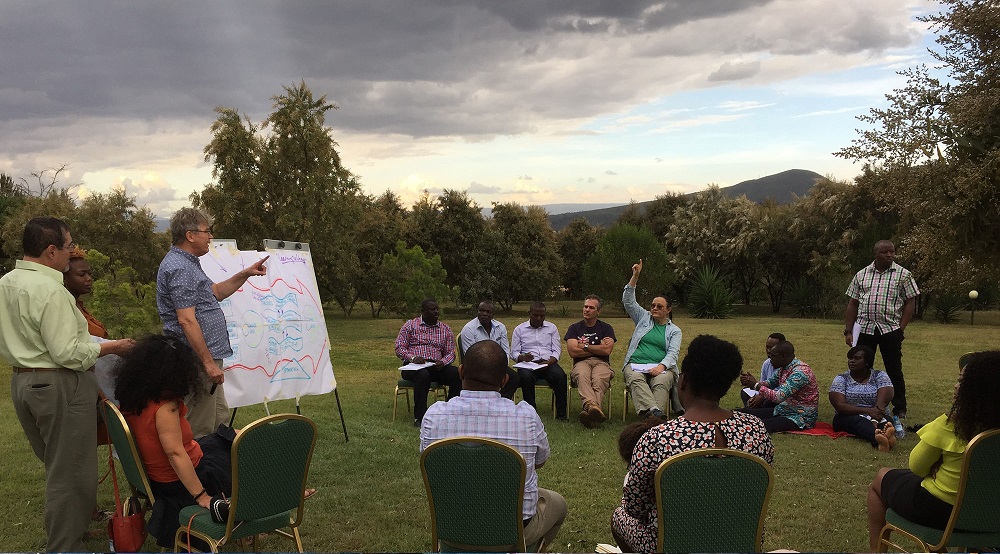Hardware vs Software: When the process determines the result
Article published in the latest release of the KOFF Magazine – Hardware vs Software: When the process determines the result
National and international experts/advisers are often mandated to provide assistance on policy formulation and implementation in countries emerging from dynamics of violence. However, reviews of decades of technical assistance make evident that the expertise provided is not always producing the desired results, nor contributing to sustaining peace. This is partly due to a focus on the production of tangible deliverables – such as laws, infrastructures, policies or plans – with little attention to longer-term governance processes and the development of local capacities.
This article explores this tension between short-term, tangible results and long-term processes, comparing them to a computer’s hardware and software systems. Inspired by Interpeace’s annual course on “Effective Advising in Peacebuilding Contexts”, the article presents the methods and tools available to advisors to better integrate soft elements in their practice at the strategic, operational, and personal levels, to anchor their interventions in time.
To illustrate this, a case study from Interpeace’s programme in Somaliland portrays how the integration of relational elements into a highly technical issue – the development of an electoral law – has enabled the team and their local partner to enhance their efficiency and impact in the region. In conclusion, the article advocates for the adoption of a peacebuilding lens, characterized by attention to long-term processes and local ownership, into all humanitarian and development interventions.
Interpeace’s course on “Effective Advising in Peacebuilding Contexts” was developed in 2013, with the support of the Swiss Federal Department of Foreign Affairs (FDFA). It gathers every year technical experts who work with governments or organisations in fragile and conflict-prone countries. Delivered by Interpeace’s International Peacebuilding Advisory Team (IPAT) service, the course aims to strengthen advisors’ ability to understand the complex change processes they find themselves in, enhance their impact, and overcome their institutional, cultural and interpersonal challenges.
Go to article in English here.
See KOFF magazine here.
KOFF is a well-established platform for exchange, dialogue and network composed of around 50 civil society organizations and 2 state organizations engaged in the fields of peace, human rights and development cooperation. Its objective is to contribute to the reinforcement, the visibility and the relevance of Swiss peacebuilding across the spectrum from fragility to peace.

